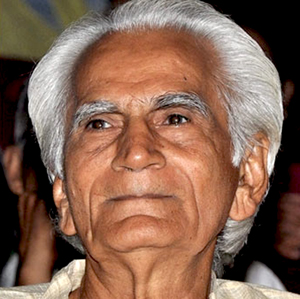New Delhi, Dec 30: Noted Gujarati writer Raghuveer Chaudhary has been selected for the 51st Jnanpith award for his contribution to Indian literature, it was announced on Tuesday.
 The announcement was made by the selection boardafter a meeting here.
The announcement was made by the selection boardafter a meeting here.
A novelist, poet and critic, Chaudhary is a recipient of Sahitya Academi Award for his novel, "Trilogy Uparvaas" in 1977. His popular novels include "Amrita", "Venu Vatsala", "Purvarang", "Laagni Samjyaa Vinaa Chuuta Padvanu" and others. While his most-known novel "Amrita" (1965) explores the concept of existentialism, other works like "Rudramahalaya" (1978) and "Somtirth" (1996) are historical fiction.
A Gandhian, Chaudhary, 76, has also worked as a columnist for many newspapers, such as Sandesh, Janmabhumi, Nirikshaka and Divya Bhaskar. He served as a teacher at the Gujarat University until his retirement in 1998. He has authored more than 80 books and received numerous literary awards for his significant contributions in Gujarati. He has also served many literary organizations.
The Jnanpith selection board comprised of eminent writer and critic Prof Namwar Singh, Prof Shamim Hanfi, Harish Trivedi, Prof Suranjan Das, Ramakant Rath, Chandrakant Patil, Prof. Alok Rai, Dinesh Misra and Leeladhar Mandloi.
Chaudhary is the fourth Gujarati writer to receive this prestigious award after Uma Shankar Joshi (1967), Pannalal Patel (1985) and Rajendra Shah (2001).





Comments
Add new comment